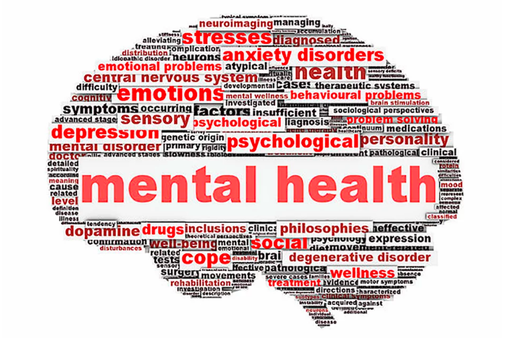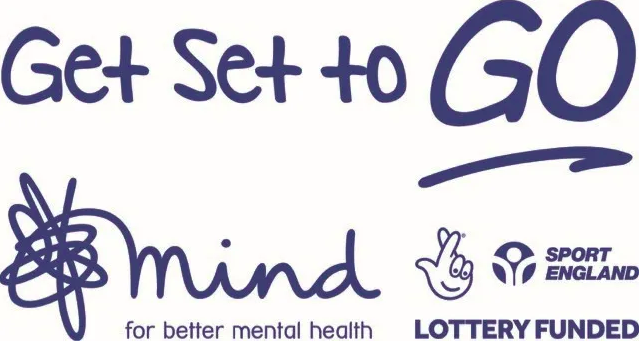Engaging in sport has been proven to have a positive effect on mental health. Follow this link to the UK Coaching website to take a module on mental health in sport https://www.ukcoaching.org/courses/learn-at-home/mental-health-awareness-for-sport-and-physical-act
five ways to wellbeing
Sport can help peoples mental health in a number of ways
Connect: Feeling close to, and valued by people is a fundamental human need and one that contributes to functioning well in the world. Social relationships are critical for promoting wellbeing and for acting as a buffer against mental ill health for people of all ages
Be Active: Regular physical activity is associated with lower rates of depression and anxiety across all age groups. Exercise is essential for slowing age-related cognitive decline and for promoting wellbeing”
Take Notice: Reminding yourself to “take notice” can strengthen and broaden awareness. Studies show that being aware of what is taking place in the present directly enhances your wellbeing and savoring the moment can help to reaffirm your life priorities
Learn: Continued learning through life enhances self-esteem and encourages social interaction and a more active life. The practice of setting goals, which his related to adult learning in particular, has been strongly associated with higher levels of wellbeing.
Give: Research shows that giving makes you happier. People with a greater interest in helping others are more likely to rate themselves as happy.
Connect: Feeling close to, and valued by people is a fundamental human need and one that contributes to functioning well in the world. Social relationships are critical for promoting wellbeing and for acting as a buffer against mental ill health for people of all ages
Be Active: Regular physical activity is associated with lower rates of depression and anxiety across all age groups. Exercise is essential for slowing age-related cognitive decline and for promoting wellbeing”
Take Notice: Reminding yourself to “take notice” can strengthen and broaden awareness. Studies show that being aware of what is taking place in the present directly enhances your wellbeing and savoring the moment can help to reaffirm your life priorities
Learn: Continued learning through life enhances self-esteem and encourages social interaction and a more active life. The practice of setting goals, which his related to adult learning in particular, has been strongly associated with higher levels of wellbeing.
Give: Research shows that giving makes you happier. People with a greater interest in helping others are more likely to rate themselves as happy.
mental health facts

“Mental health is defined as a state of well-being in which every individual realizes his or her own potential, can cope with the normal stresses of life, can work productively and fruitfully, and is able to contribute to her or his community.” WHO (2014)
1 in 3 trips to the GP are mental health related
1 in 4 adults experience a mental health problem in a year
13 people on average take their own life every day
34% of female students and 19% male students report having a mental health problem
2x more likely to die from heart disease
40% of cigarettes smoked are by people with mental health problems
10-17 years earlier to die if they have schizophrenia
4x as likely to die from respiratory disease
1 in 3 trips to the GP are mental health related
1 in 4 adults experience a mental health problem in a year
13 people on average take their own life every day
34% of female students and 19% male students report having a mental health problem
2x more likely to die from heart disease
40% of cigarettes smoked are by people with mental health problems
10-17 years earlier to die if they have schizophrenia
4x as likely to die from respiratory disease
The impact of sport and physical activity on mental health
Reduces Stress – better balance of cortisol levels. Cortisol levels are linked to a range of health problems including heart disease, high blood pressure, lowered immune response, as well as depression and anxiety.
Improves Sleep – through the release of serotonin
Reduction in racing thoughts – as the body tires so does the mind, this allows us to think clearer.
Improves mood – brain chemistry changes with releasing of endorphins.
Lifts self-esteem – reduced anxiety and happier moods through the release of neurotransmitters endorphins, serotonin and dopamine. When people start to feel fitter thy can get a confidence lift.
Lower risk of depression – People who are more active have lower levels of depression. Being active can help people who suffer from depression to relapse less.
People with other health issues can clearly see the benefit of physical activity but might find it difficult to see the benefits of exercise on a mental health problem.
Improves Sleep – through the release of serotonin
Reduction in racing thoughts – as the body tires so does the mind, this allows us to think clearer.
Improves mood – brain chemistry changes with releasing of endorphins.
Lifts self-esteem – reduced anxiety and happier moods through the release of neurotransmitters endorphins, serotonin and dopamine. When people start to feel fitter thy can get a confidence lift.
Lower risk of depression – People who are more active have lower levels of depression. Being active can help people who suffer from depression to relapse less.
People with other health issues can clearly see the benefit of physical activity but might find it difficult to see the benefits of exercise on a mental health problem.
barriers to exercise
The barriers to engagement are higher for someone who is experiencing problems with mental health.
Physical – travelling, medication
Social – difficulty meeting people, self esteem
Psychological – anxiety in new situations, difficult to make decisions
Technical Barriers – not knowing the rules, lack of experience or skill
Physical – travelling, medication
Social – difficulty meeting people, self esteem
Psychological – anxiety in new situations, difficult to make decisions
Technical Barriers – not knowing the rules, lack of experience or skill
how to make sessions easier to access for people who are experiencing mental health problems
care
Coaching and customer skills – welcoming and talk to everyone before the session starts. Get feedback at the end of the session.
Awareness – ask people how they are feeling, pay attention, look and listen
Respect – don’t ask intrusive questions, treat people fairly, available to listen
Empathy – talk about your own experiences.
You cannot judge as you’ve not walked in their shoes
Awareness – ask people how they are feeling, pay attention, look and listen
Respect – don’t ask intrusive questions, treat people fairly, available to listen
Empathy – talk about your own experiences.
You cannot judge as you’ve not walked in their shoes
get set go project
- Family and friends should be included in the program – bring a friend session
- Regular structure should be given to weekly sessions. Changes should be minimized
- Programs should focus on increasing motivation. Autonomy, competence and connectedness
- Reduce initial barriers with clear and specific information
It’s good to talk – you should be as open about talking about mental health the same way that you would be talking about an Achilles injury.
Follow the links below for more information
Coaching and how to help someone who is experiencing mental health problems -
UK Coaching - mental health awareness for sport - https://www.ukcoaching.org/courses/learn-at-home/mental-health-awareness-for-sport-and-physical-act
Mind - for better mental health - https://www.mind.org.uk/
UK Coaching - mental health awareness for sport - https://www.ukcoaching.org/courses/learn-at-home/mental-health-awareness-for-sport-and-physical-act
Mind - for better mental health - https://www.mind.org.uk/



